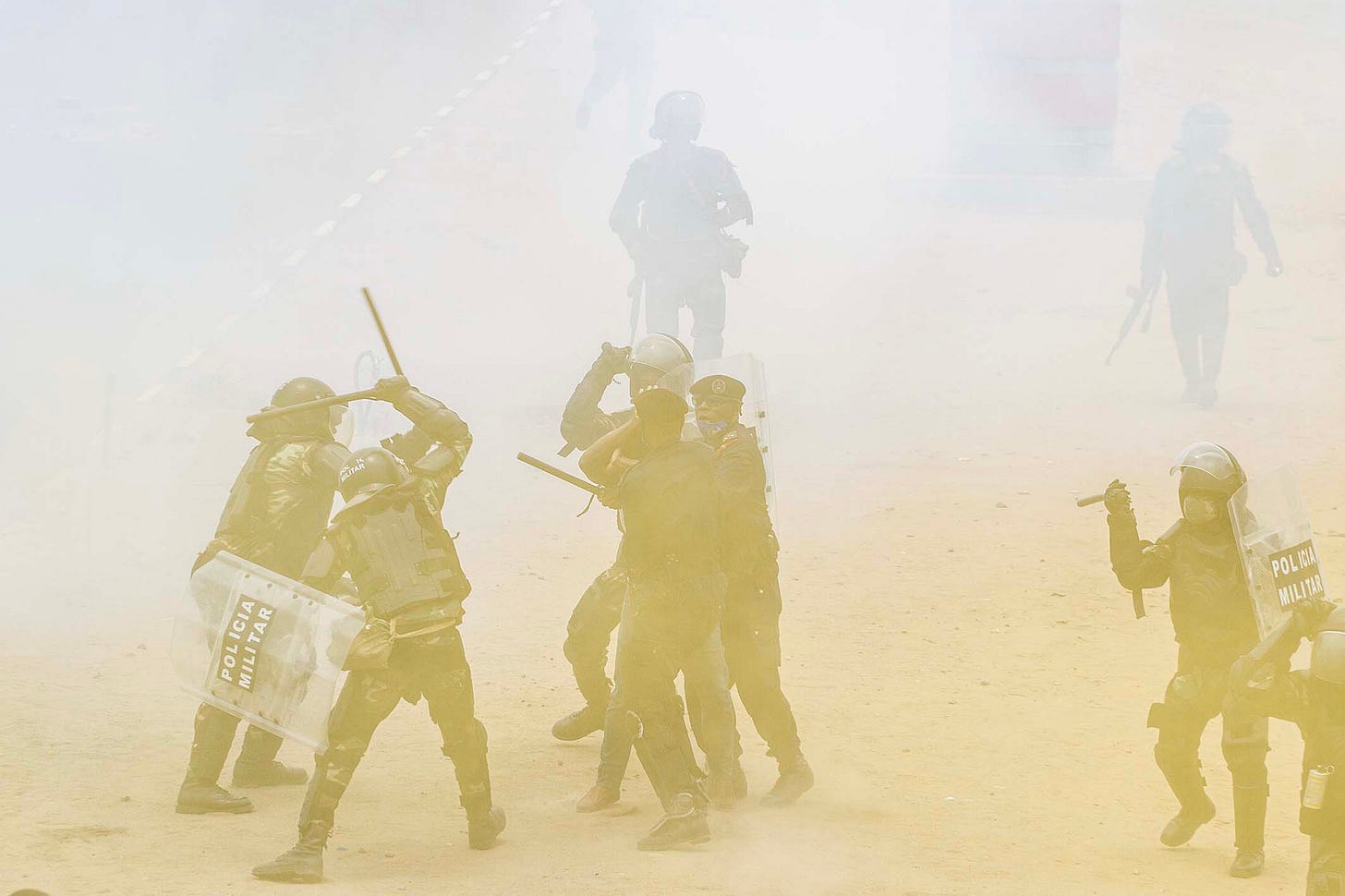Angola: Vandalism law seen as backdoor attack on dissent
Damaging public property at a protest can fetch the same jail sentence as murder.
Borralho Ndomba in Luanda

Angolan civil society groups are asking the Constitutional Court to repeal a law passed by Parliament in mid-July that seeks to penalise “crimes of vandalism of public goods and services” with up to 25 years in prison – the same as murder.
The law also imposes a 10-year prison sentence on people convicted of filming or photographing public services. That means a patient who films mistreatment at a government hospital, or a person who films police brutality, would risk jail.
Critics say the new law is meant to discourage citizens from participating in protests and government scrutiny.
The law “covers up what is President João Lourenço’s primary intention, which is to punish all those who try to protest against his rule in Angola,” said Adilson Manuel, the leader of the Bloco Democrático, a political organisation for young Angolans. They are among the seven groups petitioning the court.
The Association for Justice, Peace and Democracy warned that the new law gives the ruling party and President João Lourenço’s government the legal means to persecute NGOs and political parties that exercise the freedom of assembly. The group said this would deal “a coup de grace to participatory democracy”.
The government says it is simply reacting to an upsurge in vandalism across the country.
Much of the reported vandalism has targeted monuments depicting national figures like first president Augustinho Neto, and the country’s postal services and the rail and electricity network.
The head of the National Electricity Transmission Network, Rui Gourgel, told journalists in early July that vandals had cost the public company more than $6-million in the last three years.
Those who remain sceptical of the official rhetoric on the law are now preparing to test it on the streets. “We are going to hold several demonstrations across the country in order to put an end to this attempt by the Angolan government to violate the Constitution of the republic,” said Manuel.





